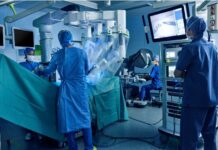New Delhi, May 19, 2019: On the occasion of World Parkinson’s Day, health experts highlight the role of innovations in improving the lives of Parkinson’s Disease (PD) patients. Minimally invasive treatments are transforming lives by treating a variety of disabling neurological symptoms like tremors, muffled speech and slowed movements.
Parkinson’s disease is a neurologic disorder that develops when the cells in the brain producing a chemical called dopamine stop working properly or are lost over time. These cells control movements like writing, walking, talking, etc. With the degeneration of these cells, the symptoms start to appear. Over the decades, the disease has brought many lives to a screeching halt.
“Unlike the conventional DBS systems which use pacemaker technology, the advanced MICC technology (Multiple Independent Current Control) delivers precise and controlled stimulation suited for the specific needs of the brain. DBS offer symptomatic benefit which can ease symptoms but have not been proven to change the underlying course of disease,” said Dr.Sumit Singh, Director Neurology, Artemis Hospital, Gurgaon.
DBS systems come with rechargeable batteries that make the device work 24 hours. Essentially, the device wakes up with you and manages your symptoms at all times. The latest DBS systems are engineered for precise neural targeting to customize therapy for patients with Parkinson’s disease.
“The evolution in technology leading to innovations like rechargeable pacemakers in the latest DBS systems, are helping patients manage the disease more efficiently. This technology needs a replacement surgery only after 15-20 years. That is to say, the pacemaker in the device lasts up to 20 years. A patient in the age group of 45 to 55 is best suited for this technology,” shared Dr.Aditya Gupta, Director Neurosurgery, Artemis Hospital, Gurgaon.
Corporate Comm India(CCI NewsWire)





















